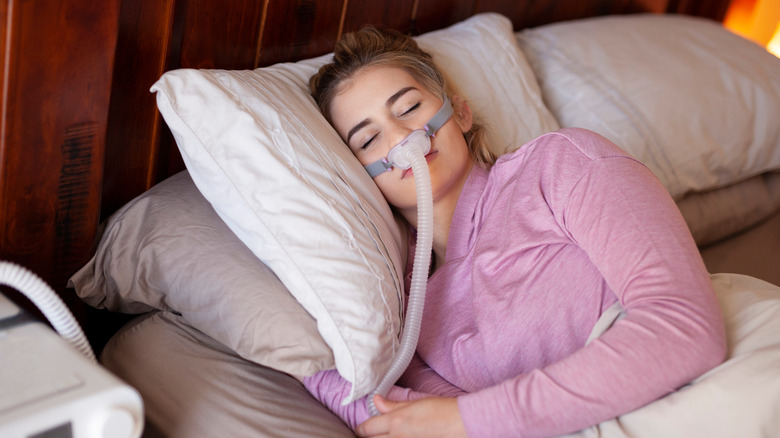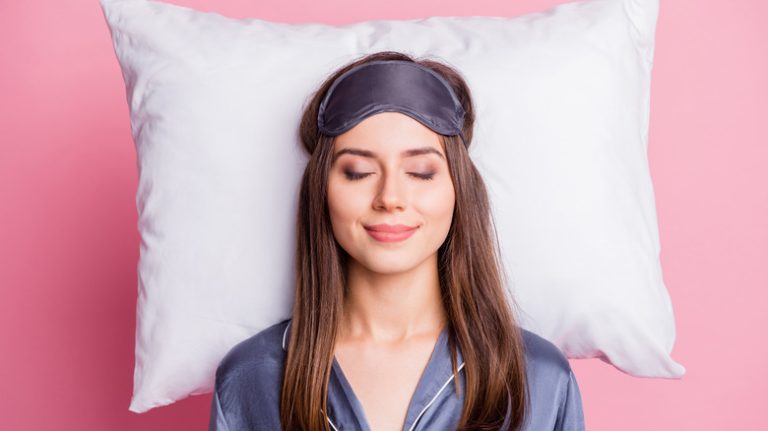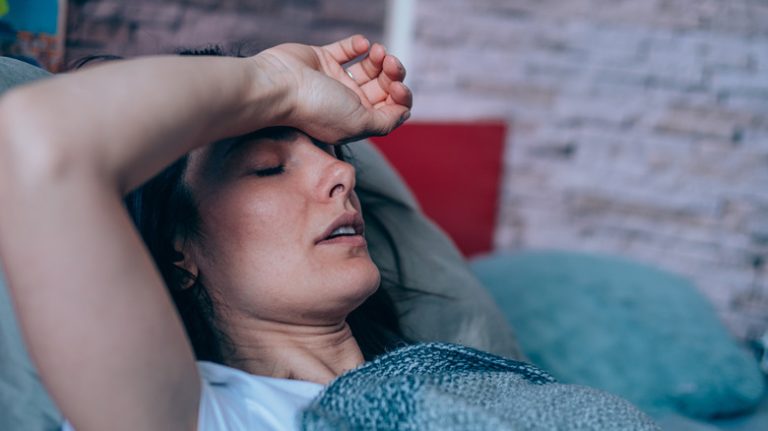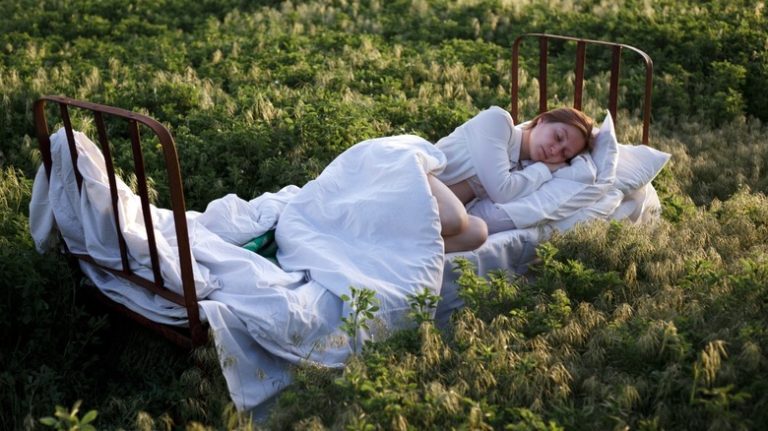Sleep apnea is a dangerous sleep disorder that causes your breathing to start and stop while asleep (via Mayo Clinic). There are a few different types of sleep apnea, with the most common being obstructive sleep apnea. Obstructive sleep apnea happens when the throat muscles relax, which blocks your airway and results in less oxygen being sent to your body and blood. Per the statistics by the Sleep Foundation, it affects around 10 to 30% of the US adult population.
Another type of sleep apnea is called central sleep apnea, which happens when there is a disruption between the brain signals and the muscles that control your breathing. Sleep Foundation reveals that central sleep apnea is relatively rare, affecting less than 1% of the population. Lastly, there is complex sleep apnea, in which a person shows symptoms of both obstructive and central sleep apnea, explains the Mayo Clinic. According to WebMD, if you have sleep apnea, you may notice a variety of symptoms such as sleepiness during the daytime, intense snoring, night sweats, frequent need to pee, dry mouth, and sudden gasping during the night that might wake you up.
Tips for managing sleep apnea at home

If you have sleep apnea, you may want to visit a professional sleep specialist who can guide you toward the best treatments and devices to prevent snoring and sleep disruption. At the same time, there are certain lifestyle changes you can make to manage the symptoms of sleep apnea at home. According to the Sleep Foundation, you may want to be mindful of your sleep position. If you sleep on your back, chances are that your tongue might slide toward the back of the throat and it may be harder to breathe smoothly. Side sleeping is the best option for those with sleep apnea as it will ensure that the airway remains free of obstruction. If side sleeping isn’t a viable option, you may want to prop yourself up at a 60-degree angle using pillows to elevate your back, suggests the Sleep Foundation.
Symptoms of sleep apnea can also be managed by exercise and practicing daily yoga, per Healthline. Yoga is useful for strengthening your respiratory system and improving your breathing, which may reduce sleep disruptions during the night. Healthline further recommends using humidifiers if you struggle with sleep apnea. They can keep your airways free from congestion by adding moisture to the dry air surrounding you, which will help you breathe and sleep better.



